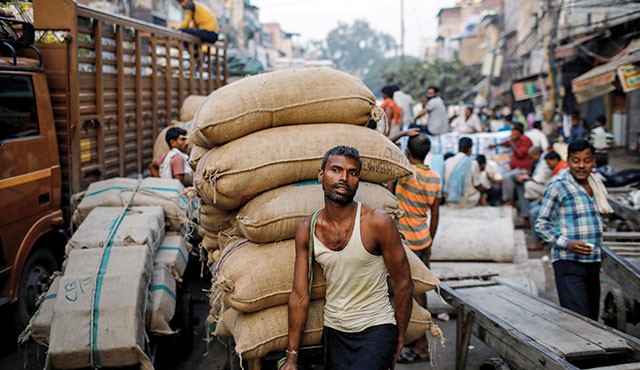QUITO (CNS) — People who cross international borders to work often face appalling exploitation, yet this is mostly shrugged off by citizens in host countries, said a U.S. bishops’ conference participant at a global migration meeting in Quito, Ecuador.
“Labor trafficking is common and people tend to underestimate the damage this causes,” said Hilary Chester, associate director for anti-trafficking programs in the bishops’ Migration and Refugee Services.
“Migrants and their families invest in jobs,” she said, noting that with fees paid to labor contractors, migrant laborers “start their jobs in debt and, with their visas tied to that job, they can’t quit.”
Unscrupulous employers take advantage of migrants’ vulnerability, “yet we find people saying, ‘at least they’re better off than they would be in their own countries,’” Chester told Catholic News Service.
She was one of more than 250 civil society leaders from around the world who attended the Jan. 21-24 Global Forum on Migration and Development. The theme of this annual meeting — for governments, local authorities, businesses and faith and civil society organizations — was “Sustainable approaches to human mobility: upholding rights, strengthening state agency and advancing development through partnerships and collective action.”
People are deprived of basic health care and education through increasing criminalization of migration, said Stephane Jaquemet, policy director of the International Catholic Migration Commission and head of the forum’s civil society coordinating office.
“We encourage governments to be inclusive” so that migrants can receive basic services regardless of their status, he said, noting that where teachers are obliged by law to report irregular migrants, parents will not enroll their children in school.
“In acute humanitarian crises, people must be treated according to their needs,” Jaquemet said in a Jan. 24 phone interview. “Whether someone is a political opposition figure or a woman no longer able to feed her children, the fundamental dignity of every human being is what is important, not the artificial distinctions between refugee and migrant,”

